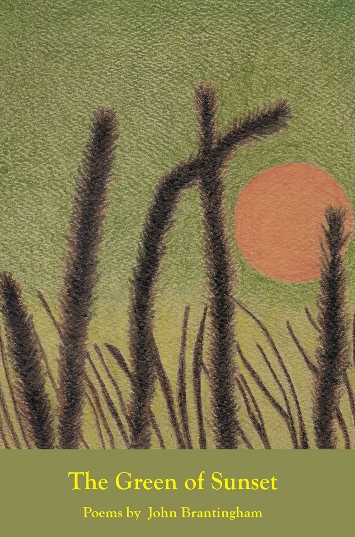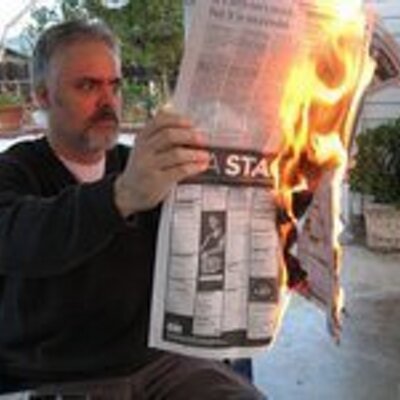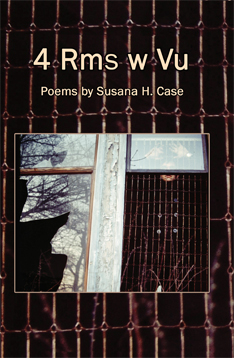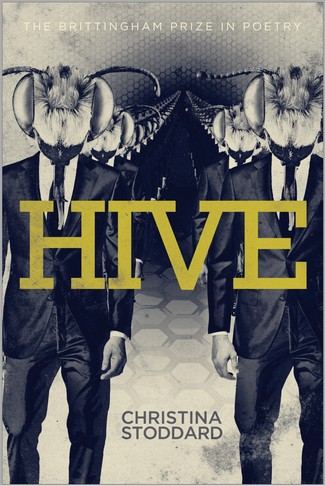Today's book of poetry:
Multitudinous Heart - Selected Poems. Carlos Drummond de Andrade. A Bilingual Edition, translated by Richard Zenith. Farrar, Straus and Giroux. New York, New York. 2015.
Carlos Drummond de Andrade (October 31, 1902 - August 17, 1987) is considered by many to be the greatest Brazilian poet. To many he is the national poet.
Imagine this, his poem "Canção Amiga" ("Friendly Song") is printed on the Brazilian 50 cruzado novus bill. The man's poetry is on money.
Drummond was a modernist who marched through several stylistic approaches to his poetry over the decades, he published over forty books of poetry, but as far as Today's book of poetry can tell this body of work always remained accessible to his readers.
Residue
A little of everything remained.
Of my fear. Of your disgust.
Of stuttered cries, Of the rose
a little remained.
A little of the light glancing
off the hat remained.
A little (just a little)
of kindness remained
in the scoundrel's eyes.
Little remained of the dust
that covered your white
shoes. A little clothing,
a few tattered veils, a little,
just a little, a very little remained.
But a little of everything remains.
Of the bombed bridge,
of two blades of grass,
of the empty pack
of cigarettes a little remained.
Because a little of everything
remains: a little of your chin
in the chin of your daughter,
a little of your harsh silence
in the angry walls,
in the speechless,
climbing leaves.
A little of everything remained
in the porcelain saucer,
a cracked dragon, a white flower.
A few lines in your forehead,
a photo
remained.
If a little of everything remains,
why won't a little of me
remain? In the train
for the north, in the boat,
in newspaper ads?
A little of me in London,
a little of me somewhere?
In that consonant...
In that well...
A little remains tossing
in the mouths of rivers,
and the fish don't scorn it:
a little that isn't in books.
A little of everything remains.
Not much: this absurd
drip from a faucet,
half salt, half alcohol,
this frog's leg jumping,
this watch crystal shattered
into a thousand hopes,
this swan's neck,
this childhood secret...
A little of everything remained:
of me, of you, of Abelard.
Hair on my sleeve,
a little of everything remained;
wind in my ears,
a silly burp, a groan
from a disgruntled bowel,
and minuscule artifacts:
bell jar, honeycomb, a bullet
casing, an aspirin capsule.
A little of everything remained.
And a little of everything remains.
Oh open these jars of lotion
and smother
the unbearable stench of memory.
But a little of everything terribly remains.
Under the breaking waves,
under the clouds and winds,
under bridges and under tunnels,
under flames and under sarcasm,
under slobber and under vomit,
under the sob, the jail, the forgotten,
under gala shows and scarlet deaths,
under libraries, asylums, and triumphant churches,
under you yourself and your crusty feet,
under the hinges of class of family
a little of everything always remains.
Sometimes a button. Sometimes a rat.
...
And that, my dear friends, is how the Masters do it.
Multitudinous Heart has poems from about fifteen or so of Carlos Drummond de Andrade's works, poems from 1932 to 1987. Some of these poems tackle social issues, humanitarian concerns, others are ironic, and still others are metaphysical in nature. And bless Drummond's cotton socks, as he got older his work got more erotic. Who doesn't love that?
Drummond de Andrade's short poems feel big and his long poems are epics. The way Today's book of poetry sees it they are timeless, immortal, and nothing better can be said of poems.
Richard Zenith has translated Fernando Pessoa, Antonio Lobo Antunes, Jose Luis Peixote, Fundacao Calouste Gulbenkian and so on. His touch here feels invisible, he has rendered Drummond's Portuguese English. Zenith has won numerous awards for his translations and these seamless, natural and vibrant poems show us why.
Declaration in Court
I beg pardon for being
the survivor.
Not for long, of course.
Set your minds at rest.
But I have to acknowledge, to confess,
I'm a survivor.
If it's sad and comical
to keep sitting in the auditorium
after the show has ended
and the theater is closing,
it's sadder, and grotesque, to be the sole actor
left onstage, without a role,
after the audience has all gone home
and only cockroaches
circulate in the sawdust.
Please note: it's not my fault.
I didn't do anything to be
a survivor.
I didn't beseech the powers on high
to keep me going this long.
I didn't kill any companions.
If I didn't make a noisy exit,
if I just stayed on and on and on,
I had no ulterior motive.
They left me here, that's all.
One by one they went away,
without warning, without waving at me,
without saying farewell, they disappeared.
(Some were veritable masters of silence.)
I'm not complaining. Nor do I reproach them.
It surely wasn't their intention
to leave me all on my own,
at a loss,
defenseless.
They didn't realize that one man would remain.
That's how I turned into -- or they turned me into --
a remainder, a leftover.
If it amazes you that I'm still living,
let me clarify: I'm just outliving.
I never really lived except
in plans and projects. Postponements.
Next year's calendar.
I never saw the point of living
when so many around me lived so much!
Sometimes I envied them. Sometimes I felt sorry
to see so much life used up by living
when not-living, out living
is what endured.
And I stood in a corner,
simply and inconsistently
waiting for my turn
to live.
It never came. Cross my heart. There were rehearsals,
trial runs, illustrations, that's all. Real life
smiled from afar, inscrutable.
I gave up. I withdrew
more and more, like a shellfish into its shell. Now
I'm a survivor.
A survivor is more disconcerting
than a ghost. I know: I disconcert myself.
One's own reflection is a ruthless accuser.
However much I hide from the world, I project
my own person, who looks back and taunts me.
It's useless to threaten him. He always returns,
every morning I return, I come back to me
with the regularity of a postman bringing bad news.
Every single day
confirms the strange phenomenon that's me.
My roots and my path
are not where I am,
where I've ended up,
a persistent, redundant, nagging
survivor
of the life I still haven't
lived, I swear to God and the Devil, I never lived.
Not that I've confessed, what will be
my punishment, or my pardon?
My hunch is nothing can be done
for or against me.
How to do or undo
the undoable not-done?
If I'm a survivor, I'm a survivor.
You have to allow me at least
this quality. I'm the only one, you see,
of a very old group
unremembered on the streets
and in video films.
Only I still linger, sleep,
dine, urinate,
stumble, even smile
at odd moments, I assure you I smile,
like now, for instance, when I'm smiling
for being I (with relish?) a survivor.
I'm just waiting -- all right? --
for this time of surviving to end
and for everything to conclude without scandal
in the eyes of indifferent justice.
I've just noticed, without surprise,
that you hear but don't care if you understand me,
nor does it matter that a survivor
has come to present his case, to defend
or accuse himself, it's all the same
nothing at all, and void.
...
There was much excitement at this morning's read. Apparently Kathryn and Milo have mended their fences and buried the hatchet because they were sitting close enough to each other today that they only needed one chair. The two of them made every poem sound like a love poem this morning. And they weren't wrong, Drummond is on a high plain, his poems are love poems to us all.
Now Milo and Kathryn are sitting in Milo's corner of the office watching alternating videos of the Cure and Tori Amos. Not sure how this will end but I expect there will be more fireworks. Milo is definitely a Ted Hughes man and Kathryn loves Sylvia.
Richard Zenith's excellent dance with Drummond frees his voice to our language. These peoms feel as natural as Roy Hobbs/Robert Redford swinging for the fences in Bernard Malamud's ace.
Drummond has poems that simply march across the page and timelessly down through the decades like some sort of epic troubadour. Drummond can really lay it out.
The Body's Contradictions
My body's not my body,
it's the illusion of another
being. A master at the art
of hiding me, it even
hides me from myself.
My body's not my agent.
It's my sealed envelope,
a threatening gun,
and finally my jailer:
it knows me better than I do.
My body deletes the memory
I once had of my mind.
It plants in me its pathos,
which strikes, wounds, condemns me
for crimes I didn't commit.
Its most diabolical trick
is to make itself sick, forcing
me to bear the weight
of each new ache it weaves
and passes to me in disgust.
That's why my body invented
pain: to make it internal,
an integral part of my id,
where it dims the light that tried
to spread into every corner.
At times by body has fun
without my knowledge and against
my will, and as the vicious
pleasure runs through its cells,
it laughs at my nonreaction.
Ordering me to go out
in search of what I don't want,
it negates my ego, affirming
itself to be lord of my I,
reduced to a servile dog.
Instead of me, my greedy
body is the one that feels
my most exquisite pleasure,
giving only chewed-up scraps
to my unsatiated hunger.
If I try to get away
by thinking of abstract things,
it comes back to me with all
the weight of its filthy flesh,
its boredom and discomfort.
I want to break with my body,
I want to confront and accuse it
for having annulled my essence,
but it goes off on its own
and doesn't even hear me.
Constantly pressed by its pulse
that never misses a beat,
I'm not who I used to be:
led by its sensual step,
I do dancing with my body.
...
Today's book of poetry thinks Drummond "sings the body electric" with the best of 'em. Today's book of poetry is a small and slight forum for giants like this but we certainly appreciate him dropping by.
Carlos Drummond de Andrade
ABOUT THE AUTHOR
Carlos Drummond de Andrade (1902-1987) was born in a small town in Minas Gerais. While he spent most of his life working as a government bureaucrat, he regarded poetry as his true vocation, and his first book was published in 1930. During six decades of writing, his work went through many phases, transcending styles and schools while being strongly influenced by modernism. Few critics or serious readers would dispute his status as Brazil's greatest poet.
Richard Zenith
ABOUT THE TRANSLATOR
Richard Zenith lived in Brazil and France before immigrating to Portugal in 1987. He has translated the poetry of Luís de Camões, Fernando Pessoa, Sophia de Mello Breyner Andresen, and João Cabral de Melo Neto.
426
DISCLAIMERS
Poems cited here are assumed to be under copyright by the poet and/or publisher. They are shown here for publicity and review purposes. For any other kind of re-use of these poems, please contact the listed publishers for permission.
We here at TBOP are technically deficient and rely on our bashful Milo to fix everything. We received notice from Google that we were using "cookies"
and that for our readers in Europe there had to be notification of the use of those "cookies. Please be aware that TBOP may employ the use of some "cookies" (whatever they are) and you should take that into consideration.














